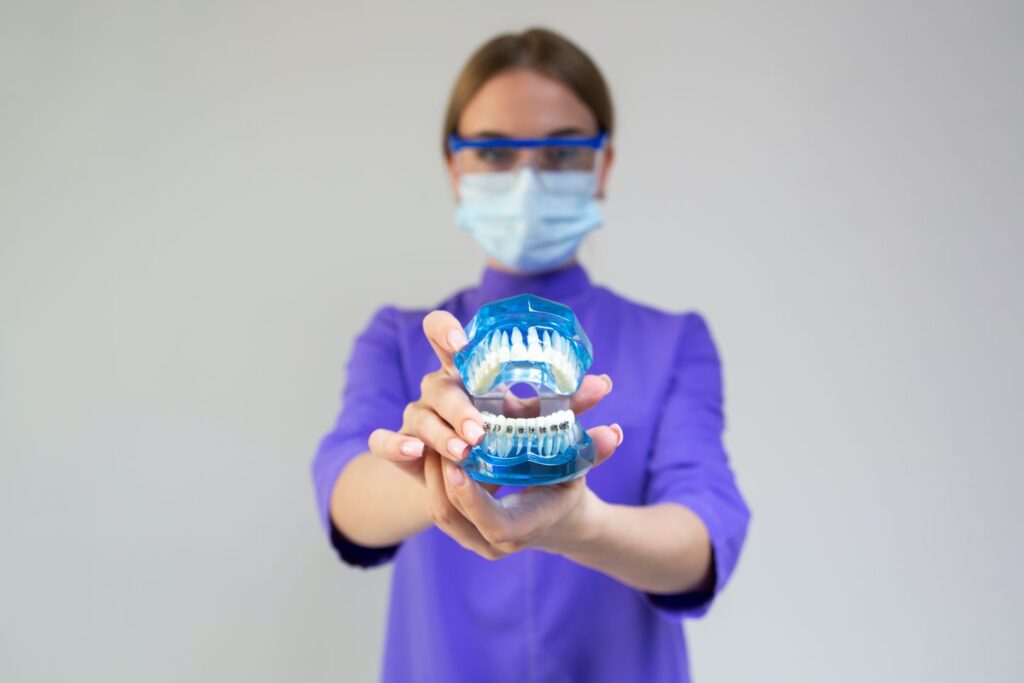You’ve probably heard of dental implants and their advantages in replacing missing teeth. But who benefits the most from getting dental implants?
The answer is simple: anyone looking to have a healthy, natural-looking smile that lasts. Dental implants are one of the strongest and longest-lasting options when missing teeth must be replaced.
Dental implants look and feel the same as natural teeth, which means they are reliable. Read on to learn about who will benefit most from dental implants.
Table of Contents
Are Dental Implants Necessary?

Yes, dental implants can be necessary for various reasons. Dental implants are used to replace missing or damaged teeth and restore the function of the jawbone.
For those who have experienced tooth loss due to age, disease, injury, or any other reason, dental implants can provide a permanent solution that looks and feels just like natural teeth.
Below are the people who will benefit the most from getting dental implants:
Patients Who Have Missing Teeth
Dental implants can replace missing teeth and restore your smile’s natural look and feel. Implants are perfect for those who have suffered from tooth decay or trauma, as they provide a natural-looking replacement that is held in place with a titanium post.
Patients Who Have Jawbone Damage
Dental implants can provide stability and support for existing teeth in damaged jawbone cases. This can help preserve your natural teeth and prevent further damage from occurring. The implant is held in place with a strong titanium post, which helps prevent shifting and movement of the affected teeth.
Patients Who Want to Improve Their Smile
Dental implants can be used to improve the aesthetics of your smile. Dental implants feel and look like natural teeth so that you can feel confident in your new smile. Implants also help restore proper function to your mouth and jaw, which is important for speaking and eating. However, they also address cosmetic issues such as gaps and crooked teeth.
Overall, dental implants can provide several benefits for those who need them. Dental implants can help you achieve a more confident and beautiful look, from restoring missing or damaged teeth to improving your smile’s aesthetics.
If you think you may benefit from dental implants, contact Gorgeous Smiles today and schedule a consultation. They can discuss the benefits of dental implants and help you determine if they are right for you.
What Are the Preparations Necessary To Get Ready for Dental Implants?

Since dental implants are a surgical procedure, it is important to understand the preparations necessary to ensure a successful outcome. Before getting dental implants, consult your dentist and ask questions about the process, cost, and recovery time.
Once you decide to move forward with treatment, the next step is to have a complete physical exam to determine if you are in good health and to ensure that there are no underlying medical conditions that may interfere with the implant process.
Your dentist will also take X-rays and impressions of your mouth to create a custom treatment plan. This helps ensure that the dental implants are placed correctly to provide the best possible results.
Furthermore, your dentist may suggest additional treatments before placing the implants, such as a bone graft, sinus lift, or gum recession surgery. This helps to ensure that your jawbone has enough strength and density to support the implant for many years.
Once all of the necessary preparations are complete, you will be ready to receive your dental implants. Usually, you will have to wait a few months for the implants to integrate with your jawbone before final restoration. However, there is no need to worry – your dentist will provide instructions on how to care for the implants during this phase.
How to Properly Care for Dental Implants
Of course, you are responsible for caring for your dental implants, like you are responsible for caring for your natural teeth. It is important to brush and floss regularly, as this will help prevent plaque buildup, which can lead to gum disease.
Additionally, it’s a good idea to visit your dentist at least twice a year for professional cleanings and check-ups. These visits will help your dentist detect any potential problems with your dental implants, like infection or loosening.
It’s also important to avoid hard or sticky foods that could damage the implants or leave residue around them. And as with regular teeth, refrain from biting your nails and chewing on items such as pens or ice cubes because these can put unnecessary pressure on the implants.
Bottom Line
Dental implants are a great way to replace missing or damaged teeth. They can provide both cosmetic and functional benefits, making them an excellent choice for those who have lost teeth due to illness, trauma, or age-related wear and tear.
So, who will benefit the most from getting dental implants? The answer depends on several factors, including the patient’s overall health, the condition of their remaining teeth, and their personal preferences.
Generally speaking, those who have lost one or more teeth due to trauma, disease, or ageing are ideal candidates for dental implants. They can help restore a person’s smile and improve oral health. Make sure to consult your dentist to determine if you are a good candidate for dental implants.













